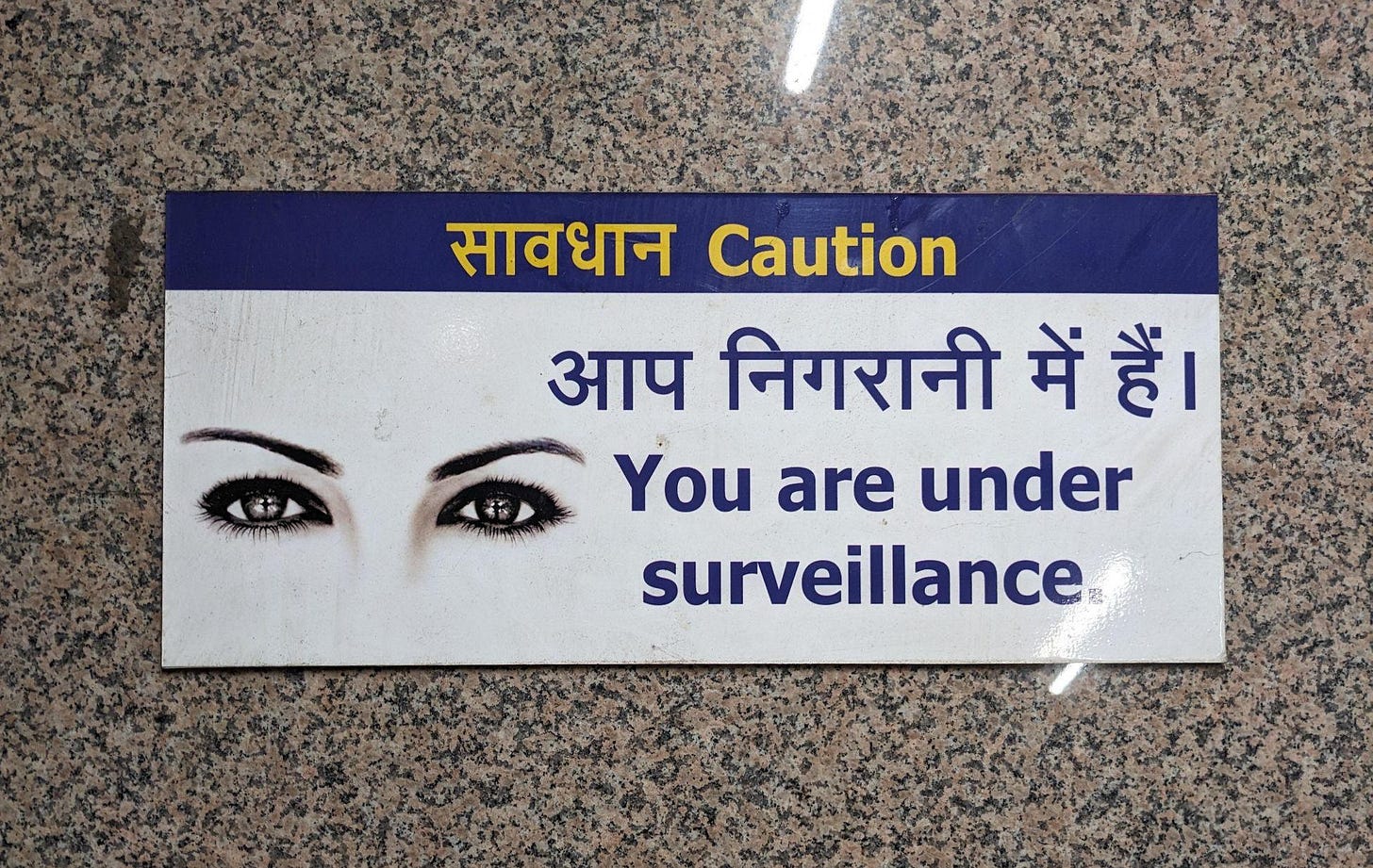Weekly Grounding #57
News, links, writing
Weekly Groundings are published every Friday to highlight the most interesting news, links, and writing I investigated during the past week. They are designed to ground your thinking in the midst of media overload and contribute to Handful of Earth’s broader framework. Please subscribe if you’d like to receive these posts directly in your inbox.
“What Kamala Should Do Now”
At The Financial Times, Rana Faroorhar shares her policy prescriptions for the newly anointed Democratic Party presidential hopeful, Kamala Harris. Faroohar states that Harris “should quickly reaffirm and own the post-neoliberal economic policy transition under way in the party. One of the many reasons that Democrats wrangled for so long about whether Biden should step down is that he has become synonymous with that shift, away from the market-knows-best ideas espoused by Bill Clinton and Barack Obama and towards a greater role for the state. This is where the country as a whole is going, on both sides of the aisle.”
Faroohar continues: “I think it’s crucial that Democrats keep supporting — and improve their messaging on — the long-term shift towards a post-neoliberal world. This is a winning strategy, particularly with younger voters.” Faroohar is correct, but it seems likely that the Harris campaign represents a last-ditch effort to save neoliberalism from the burgeoning post-neoliberal consensus.
For more on “Bidenomics” and the struggle over what shape the post-neoliberal order will take, see my recent article, “We Are All Trumpians Now.”
“Kamala Harris Refused to Assist Victims of Catholic Church Child Sexual Abuse as SF District Attorney”
Turning to Harris’ past, Social Studies republished a piece originally written five years ago for The Intercept by Lee Fang. Fang writes that “Fighting on behalf of victims of sexual abuse, particularly children, has been central to Harris’s political identity for the better part of three decades. Harris specialized in prosecuting sex crimes and child exploitation as a young prosecutor just out of law school. She later touted her record on child sexual abuse cases and prosecuting pedophiles in television advertisements, splashy profiles, and on the trail as she campaigned for public office. But when it came to taking on the Catholic Church, survivors of clergy sexual abuse say that Harris turned a blind eye, refusing to take action against clergy members accused of sexually abusing children when it meant confronting one of the city’s most powerful political institutions.”
Fang continues: “In her seven years as district attorney, Harris’s office did not proactively assist in civil cases against clergy sex abuse and refused requests by activists and survivors to access the cache of investigative files that could have helped them secure justice, according to several victims of clergy sex abuse living in California who I spoke with.” The investigative reporting that follows is a disturbing but important read.
“All the Existential Risk, None of the Economic Impact. That's a Shitty Trade”
Erik Hoel explores the economic disappointment of AI in relationship to the specter of existential risk at The Intrinsic Perspective. He argues that “the longer AI takes to show up in any positive economic indicators, the more it becomes the case that AI has brought increasing existential risk in exchange for minimal upside.”
He continues: “One can be agnostic as to when, or how, this risk materializes. You don’t need some scenario about gray goo and AIs training ever smarter versions of themselves in 2030. It could be in 100 years, when AIs are far more advanced just due to our own efforts, able to communicate amongst themselves, have much more distinct and specific personalities and agenthood, and our overconfidence in our methods of control gets us into trouble. It could be after AIs are granted rights by humans unable to help but anthropomorphize qualia-less insectoid minds wearing the face of a helpful human assistant. It could be after AIs actually gain consciousness, if they ever do (perhaps they even secretly already have to some small degree). Alternatively, it could be some group of humans themselves using AI for power-seeking purposes, and then in turn losing control. History is long, and lots can go wrong, and the introduction of AI now adds this entire new axis along which things can go wrong.”
Hoel concludes: “My point here is merely that, while existential risks don’t seem immediate to me, they are still present. They have still been introduced, in some form or another, forevermore. And since, at least according to all the macroeconomic data so far, this technology is not ushering in some grand new utopia of increasing productivity and life-quality, it all seems like, well, kind of a shitty trade.”
“At the Olympics, AI Is Watching You”
In Weekly Grounding #56, I featured an article about how France changed its laws in order to enable sweeping AI surveillance before, during, and after the Paris Olympics. In this reporting for Wired, Morgan Meaker details how this is playing out on the ground: “Security measures in Paris have been turbocharged by a new type of AI, as the city enables controversial algorithms to crawl CCTV footage of transport stations looking for threats…For critics and supporters alike, algorithmic oversight of CCTV footage offers a glimpse of the security systems of the future, where there is simply too much surveillance footage for human operators to physically watch.”
The article continues: “Near the entrance of the Porte de Pantin metro station, surveillance cameras are bolted to the ceiling, encased in an easily-overlooked gray metal box. A small sign is pinned to the wall above the bin, informing anyone willing to stop and read that they are part of an ‘video surveillance analysis experiment.’ The company which runs the Paris metro RATP ‘is likely’ to use ‘automated analysis in real time’ of the CCTV images ‘in which you can appear,’ the sign explains to the oblivious passengers rushing past. The experiment, it says, runs until March 2025.”
Meaker’s description reminded me of a photo I took earlier this year in the Delhi Metro, which gets straight to the point:
“The Politics of Water Under Occupation: Israel in Palestine”
At Counterpunch, M. Reza Behnam documents how Israel’s occupation has been inextricably linked to its policy of stealing water from Palestinians: “Israelis consume ten times the amount of water than West Bank Palestinians. Israel and its colonies (settlements) consume 87 percent of the water from West Bank aquifers, while Palestinians are allocated just 13 percent. And while they do not have enough water to bathe their children, Jewish children splash about in community pools.”
Behnam continues: “The national Israeli water company, Mekorot, has forced Palestinians to depend on Israel for their water needs. It has systematically tapped springs and sunk wells in the West Bank to supply its population, including squatters, with a continuous supply of water, while Palestinians receive water sporadically. The company routinely reduces the Palestinian supply and shamelessly, sells them their own water at inflated prices. To counter the chronic water shortage, 92 percent of Palestinians store water in tanks on their rooftops.”
“Wanted: Women for Real Food Revolution”
Moving from water to food, Liz Reitzig discusses the importance of women who dedicate their lives to the long-term food security of their communities at Raw Milk Mama: “Unstoppable. That’s what comes to mind when I think of the women—and sometimes men—who relentlessly strive for food dependability in our communities. It is they who have provided our households and communities with food security generation after generation. Today, the women who do things like milk cows and goats, make cheese, churn their own butter, grow their own herbs, plant their own gardens, feed our families and communities, are considered fringe.”
Reitzig continues: “We’re not extremists. We are productive members of our communities, helping and giving where we can, contributing our talents and skills to a common purpose.”
What grounded your thinking this week? Feel free to share in the comments.




Thanks for the mention Vincent!
Great topics in here.